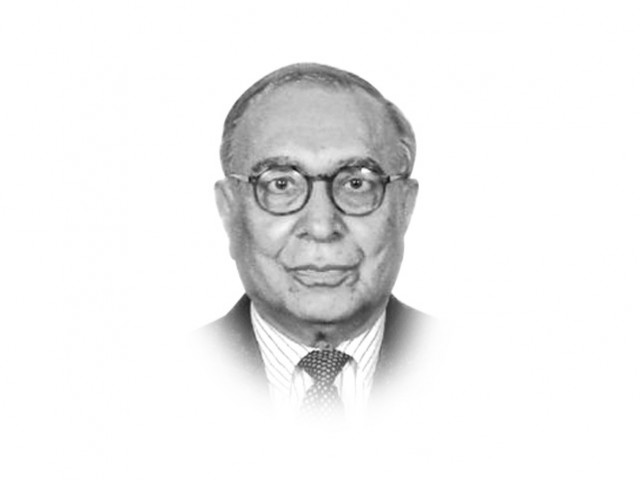No fair wind in the Gulf
Some recent developments in the Gulf region deserve to be studied more closely in Pakistan than is being done.

The change that Pakistan’s diplomacy should be particularly sensitive to is in the tone and tenor in which issues between the Arab states of the Gulf Cooperation Council (GCC) and Iran are being articulated. There has been a tacit understanding since the Iranian Revolution that both sides would endeavour to avoid the semantics of hostility. The Arab neighbours have been wary of Iran projecting power and influence, including that of its own revolutionary precepts in the region; on its part, Iran has been apprehensive of its Arab neighbours signing on to the US-led Western project to isolate Iran and bring about a regime change there. Be it as it may, there were always efforts to ensure that misperceptions are contained if not allayed. In Iran, the era of Khatami’s presidency was notable for promoting an entente with the Arab neighbours of the Gulf. The recent spat over the tiny Abu Musa island (area 10 square kilometres; population 2,000) seems to be emblematic of a deeper crisis than the known contention between Iran and the UAE over Abu Musa, and the even smaller islands of Greater and Lesser Tunbs. Iran’s preoccupation with the ever-increasing tightening of the siege around it and with incrementally stringent economic sanctions imposed upon it is understood. But what was the present and precipitous reason for Iran to dispatch first President Ahmadenejad and then a parliamentary delegation to Abu Musa in April this year is not clear. Media projection of both the visits in Iran points to perceived threats to Iran’s territorial integrity and sovereignty.
Where Arab and Iranian diplomacy would, however, be tested much more severely is in promoting a better perception of the moves towards greater integration of the GCC countries. A summit being held in Riyadh soon would probably see a formal initiative by Saudi Arabia to work towards a “Union” through a “federal format”. Saudi Arabia’s leading statesman Foreign Minister Saud al-Faisal has recently stressed the need for it to meet “existing and coming challenges”. There is some speculation that its cornerstone may be a bilateral union between Saudi Arabia and Bahrain. The danger lies in Iran interpreting it too narrowly as a Western design to create a hostile Arab bloc. The Arab fear of Iranian “hegemony” may well be a reason but there are several other purposes intrinsic to the peace and prosperity of the GCC states that provide a powerful dynamic for closer integration. These reasons would have to be explained and believed.
In better times, Pakistan could have played its traditional role of bridging occasional differences between Iran and the GCC states. Its Foreign Office has the capability to craft such assistance but lacks the confidence to embark upon it. The political leadership does not even aspire to innovative enterprises in the Islamic world; it is exhausted by a botched war against terrorism and, even more significantly, by the inability to work out a sustainable relationship with the United States. One can only hope that it is mindful of the negative fall-out on Pakistan of deterioration of Iran-Arab relations.
Published in The Express Tribune, May 7th, 2012.














COMMENTS
Comments are moderated and generally will be posted if they are on-topic and not abusive.
For more information, please see our Comments FAQ